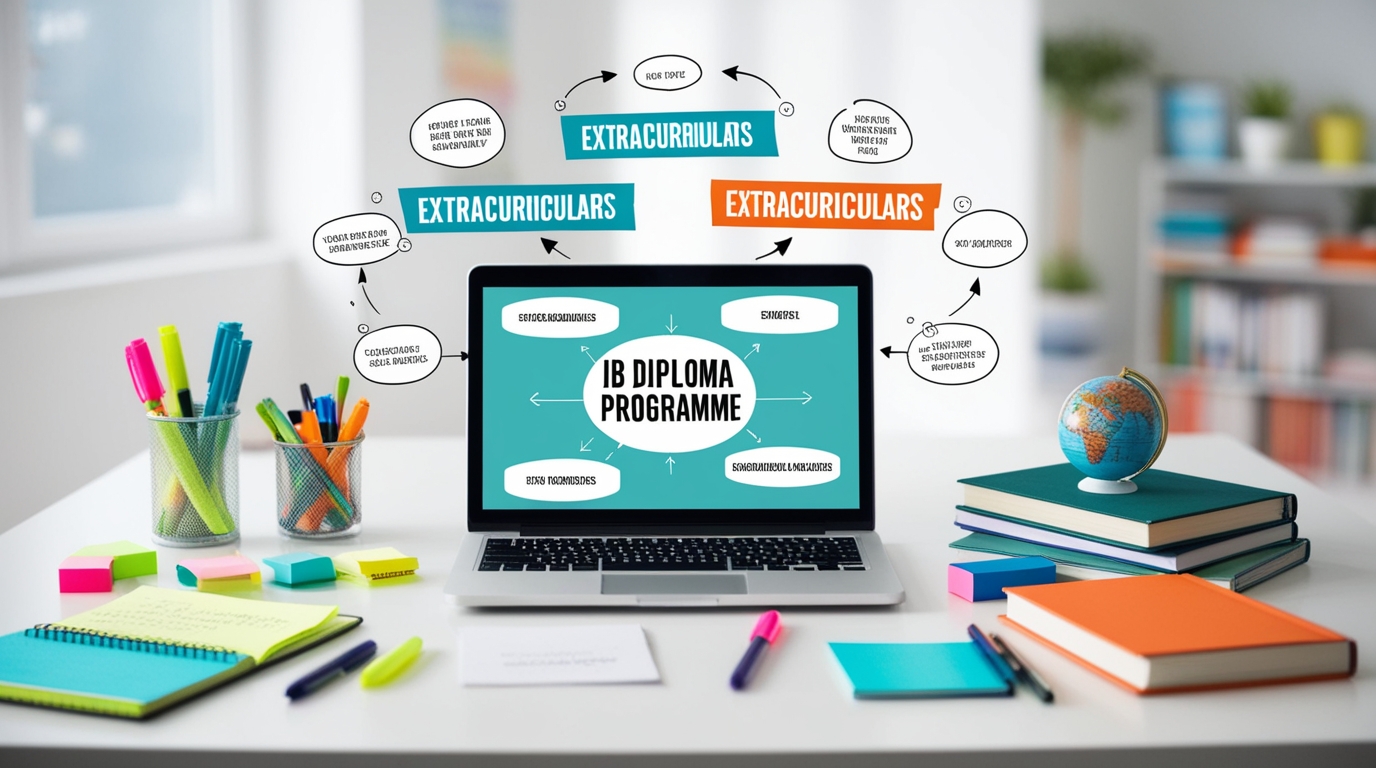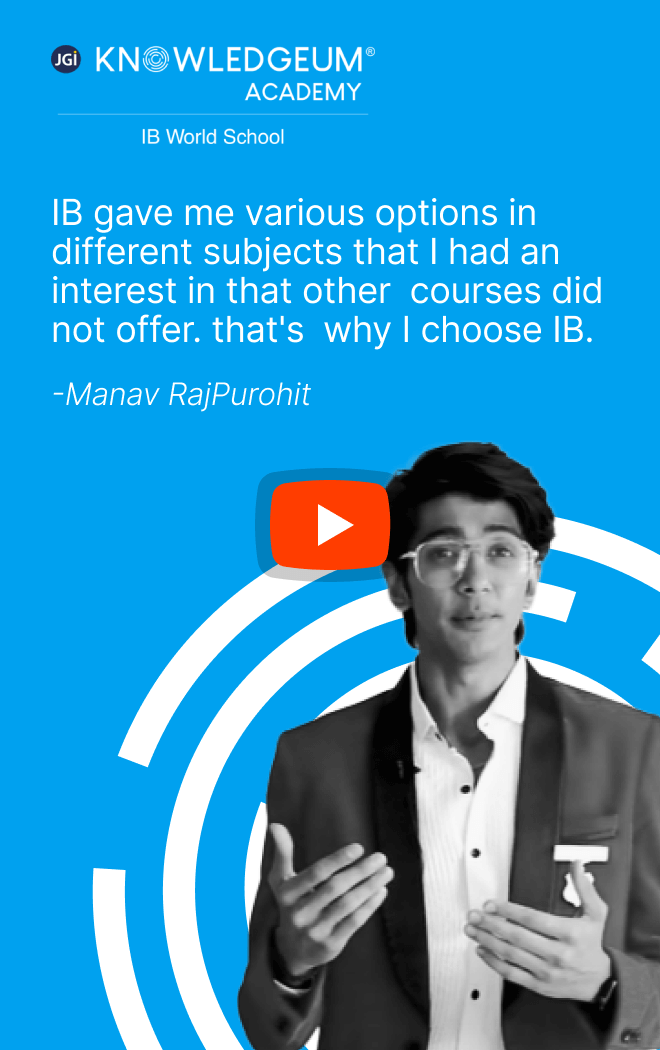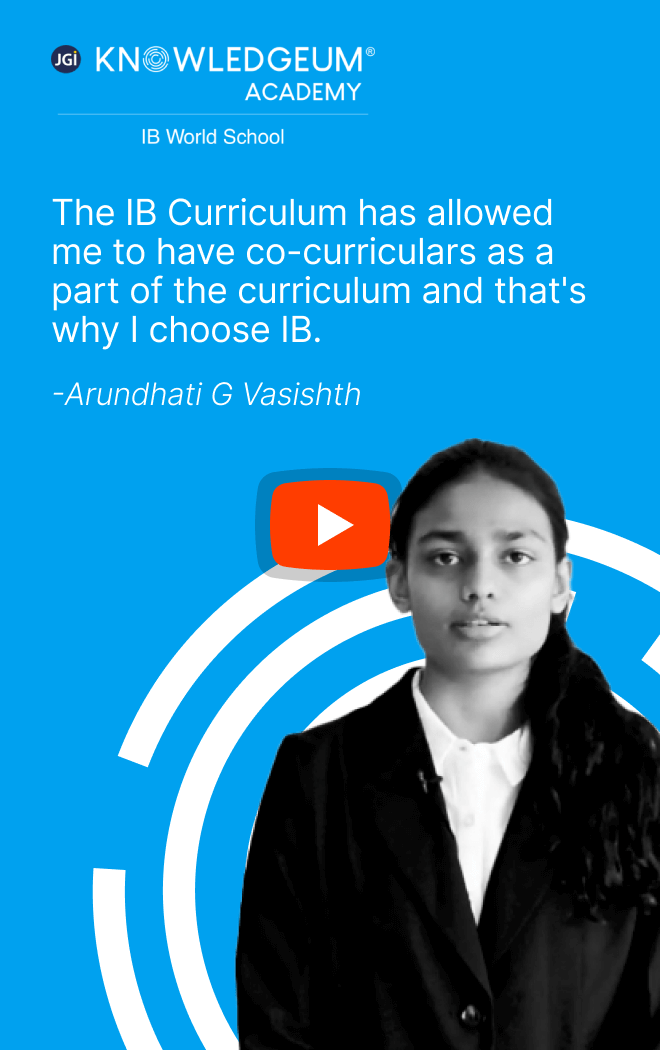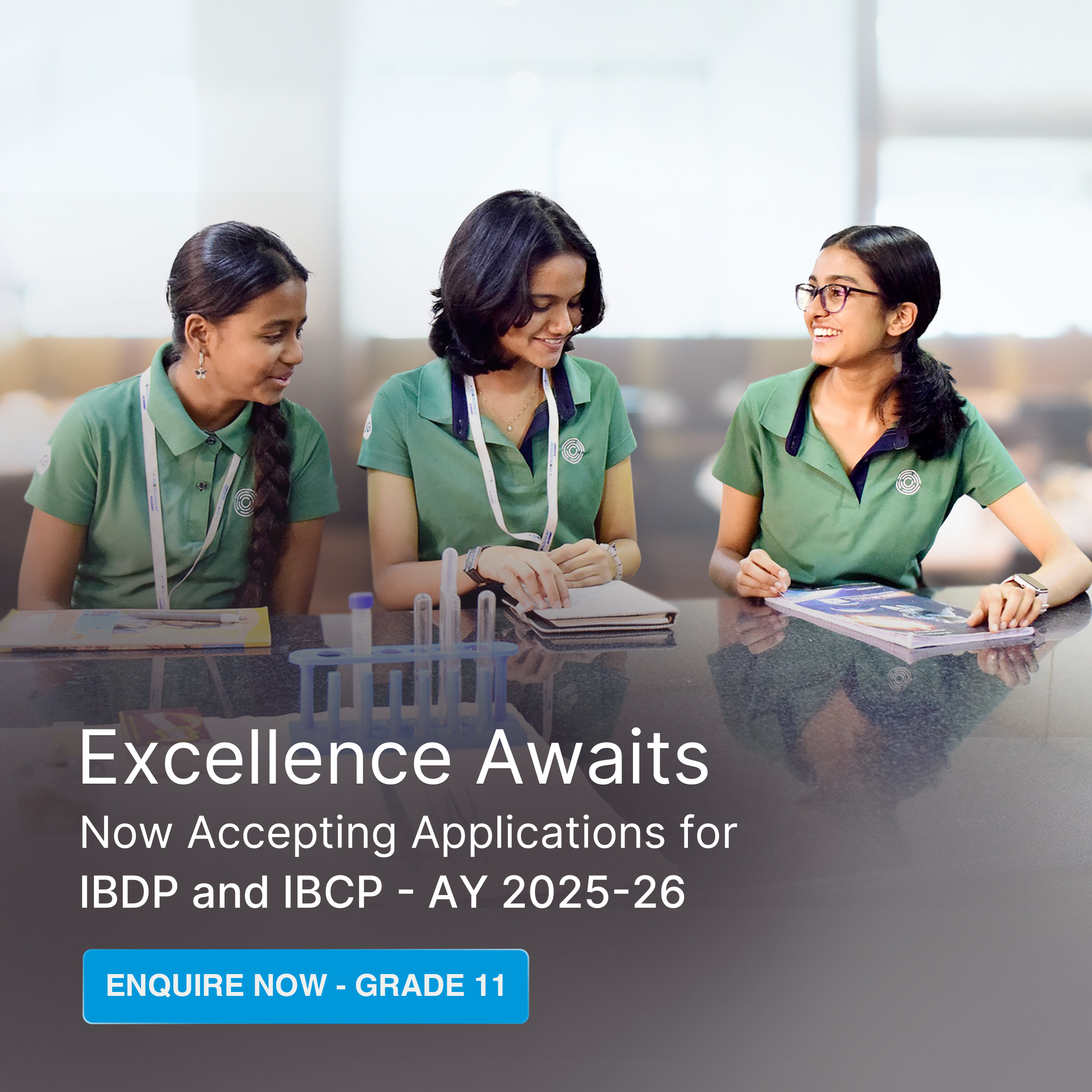Strategies for Balancing IB Diploma Programme Work and Extracurricular

The IB Diploma Programme is distinctive for its blend of academic rigour and holistic development. It emphasises not only high academic achievement but also involvement in extracurricular activities. These activities are crucial for personal growth and university applications. However, managing both can be overwhelming. How can you strike the right balance?
The International Baccalaureate (IB) Diploma Programme is renowned for its academic rigour, challenging students to excel across diverse subjects. While the programme's comprehensive curriculum and core requirements provide a well-rounded educational experience, it can also present a significant time commitment that leaves little room for extracurricular activities.
However, Best IB schools in bangalore follow a balanced approach that incorporates both academic excellence and personal growth is essential for IB Diploma Programme students. Here are some strategies to help you manage the demands of the IB and maintain a healthy, well-rounded lifestyle.
Prioritise and Manage Your Time
Effective time management is key to success in the IB Diploma Programme. Start by creating a detailed schedule that allocates time for classes, homework, and study, as well as for extracurricular pursuits and personal time. Use tools like calendars, to-do lists, and productivity apps to stay organised and on top of your workload.
When faced with competing demands, learn to prioritise tasks based on their importance and deadlines. Identify your most productive hours and use them wisely, tackling the most challenging assignments when you're at your best.
Leverage the IB's Flexibility
The IB Diploma Programme offers a degree of flexibility that can help you balance academics and extracurriculars. For example, the Creativity, Activity, Service (CAS) component encourages you to pursue your passions and interests outside the classroom, allowing you to engage in activities that align with your personal goals and schedule.
Furthermore, the IB's subject choices and levels of intensity provide opportunities to customise your course load. By selecting subjects and levels that play to your strengths, you can free up time for other pursuits without compromising your academic performance.
Seek Support and Delegate
Recognise that you don't have to do it all alone. Communicate openly with your teachers, counsellors, and parents about your challenges and needs. They may be able to offer valuable guidance, resources, or accommodations to help you manage your workload.
Additionally, don't be afraid to delegate or outsource certain tasks, such as household chores or part-time jobs, to free up time for your studies and extracurriculars. Building a support network can be instrumental in maintaining a healthy balance.
Embrace the Synergies
Rather than viewing academics and extracurriculars as competing priorities, look for opportunities to find synergies between them. Align your extracurricular activities with your academic interests or the IB's core components, such as the Extended Essay or CAS. This can help you maximise your time and gain a deeper, more enriching educational experience.
By embracing these strategies, IB Diploma Programme students can navigate the rigours of the program while cultivating a well-rounded lifestyle that supports their personal and academic growth. The keys to success lie in effective time management, flexibility, and a willingness to seek support and find creative solutions.
Structure of the IB Diploma Programme
Coursework and Assessments The IB Programme includes six subject groups, each with internal and external assessments such as essays, projects, presentations, and exams. Balancing these assignments can be challenging, especially when deadlines overlap.
Extended Essay (EE) The Extended Essay is a 4,000-word research paper that requires significant independent research. Effective planning and time management are essential to avoid last-minute stress.
Theory of Knowledge (TOK) TOK challenges students to reflect on the nature of knowledge through an essay and an oral presentation, both demanding careful preparation.
Creativity, Activity, Service (CAS) Requirements CAS is a core component that encourages engagement in activities outside the classroom, promoting creativity, physical activity, and community service. These activities contribute to a well-rounded education.
Why Extracurricular Activities Matter
Holistic Development:
Extracurricular activities help develop skills beyond academics. They foster teamwork, leadership, and creativity, which shape your overall personality and personal growth.
University Applications:
Universities value students who show depth and commitment in areas beyond academics. Extracurricular involvement can highlight your interests and skills, making your application stand out.
Stress Relief and Mental Well-being:
Participating in hobbies, sports, or volunteering provides a break from academic pressures, helping to manage stress and maintain mental well-being.
Effective Time Management
Creating a Balanced Schedule:
Develop a detailed schedule that includes fixed commitments like classes and extracurriculars, as well as time for studying and personal activities. Tools like planners or digital apps can help you stay organised and ensure no aspect of your responsibilities is neglected.
Prioritising Tasks:
Not all tasks are equally urgent or important. Prioritise based on deadlines and significance, focusing on high-priority tasks first to manage your workload effectively.
The Pomodoro Technique:
Use the Pomodoro Technique to enhance focus. This method involves working in short, concentrated bursts (typically 25 minutes) followed by a brief break, helping maintain productivity and reduce overwhelm.
Setting Realistic Goals
Short-term vs. Long-term Goals:
Set both short-term (daily or weekly) and long-term (semester or yearly) goals to stay on track. Short-term goals might include completing an assignment draft, while long-term goals could focus on achieving a specific grade.
SMART Goals:
Utilise SMART goals—Specific, Measurable, Achievable, Relevant, and Time-bound—to stay organised and motivated. For instance, aim to “study for two hours each day for the next two weeks to prepare for the upcoming maths exam.”
The Importance of Flexibility
Adapting to Changing Priorities:
Be prepared to adjust your schedule as unexpected commitments arise. Flexibility helps manage changes without causing undue stress.
Learning to Say No:
Recognise your limits and learn to say no when necessary. Overcommitting to activities can lead to burnout and impact both academic and extracurricular performance.
Maximising Efficiency
Leveraging Study Techniques:
Incorporate effective study techniques like active recall and spaced repetition to improve retention and understanding of the material. These methods can make studying more efficient and effective.
Multitasking Wisely:
Use multitasking strategically. For instance, listen to educational podcasts while commuting or review notes during breaks to maximise productivity without sacrificing quality.
Integrating Extracurriculars into Your Schedule
Making Time for What Matters:
Focus on a few extracurricular activities that genuinely interest you and align with your goals. Quality involvement in a few areas is more beneficial than superficial participation in many.
Balancing Quality and Quantity:
Strive for a balance between the number of activities and your level of commitment to each. Choose activities that you’re passionate about and can dedicate time to meaningfully.
The Role of Support Systems
Seeking Help from Teachers and Mentors:
Communicate with teachers and mentors about your workload and seek guidance when needed. They can offer valuable support and resources to help you manage both academics and extracurriculars.
Collaborating with Peers:
Engage in study groups and collaborative projects to share the workload and gain different perspectives. Working with peers can also make studying more enjoyable and less isolating.
Self-Care and Mental Health
Recognising Signs of Burnout:
Be aware of signs of burnout, such as fatigue and irritability. Take steps to address these symptoms early, including taking breaks and seeking support when needed.
Practising Mindfulness and Relaxation Techniques:
Incorporate mindfulness practices and relaxation techniques into your routine to manage stress and maintain mental well-being. Activities like meditation and deep breathing can help you stay focused and balanced.
Maintaining Motivation
Celebrating Small Wins:
Acknowledge and celebrate small achievements to keep motivation high. Recognising progress, whether in academic or extracurricular pursuits, boosts confidence and encourages continued effort.
Keeping the Bigger Picture in Mind:
Remember your long-term goals and aspirations. Understanding the broader purpose of your efforts can provide motivation and perspective during challenging times.
Review and Adjust Strategies
Regular Self-Assessment:
Regularly evaluate your progress and adjust your strategies as needed. Reflect on what’s working well and what needs improvement to refine your approach and enhance effectiveness.
Tweaking Your Plan:
Be open to making changes if certain strategies aren’t yielding the desired results. Flexibility and adaptability are key to finding the right balance between IB work and extracurricular activities.
Common Struggles Faced by IB Students
IB students often face challenges such as time management, procrastination, and the pressure to excel academically while engaging in extracurricular activities. Balancing Internal Assessments (IAs), Extended Essays (EEs), Theory of Knowledge (TOK) tasks, and CAS requirements can lead to feelings of being overwhelmed.
Why Finding a Balance is Essential
Achieving a balance between academics and extracurricular activities is crucial for both mental and physical well-being. It allows you to excel academically while enjoying a fulfilling personal and extracurricular life, contributing to overall success in the IB Programme.
Conclusion
Balancing the IB Diploma Programme with extracurricular activities is challenging but achievable with the right strategies. Effective time management, realistic goal setting, flexibility, and support systems are crucial to maintaining this balance. By managing your time effectively and prioritising self-care, you can excel academically while enjoying a well-rounded and fulfilling experience.




